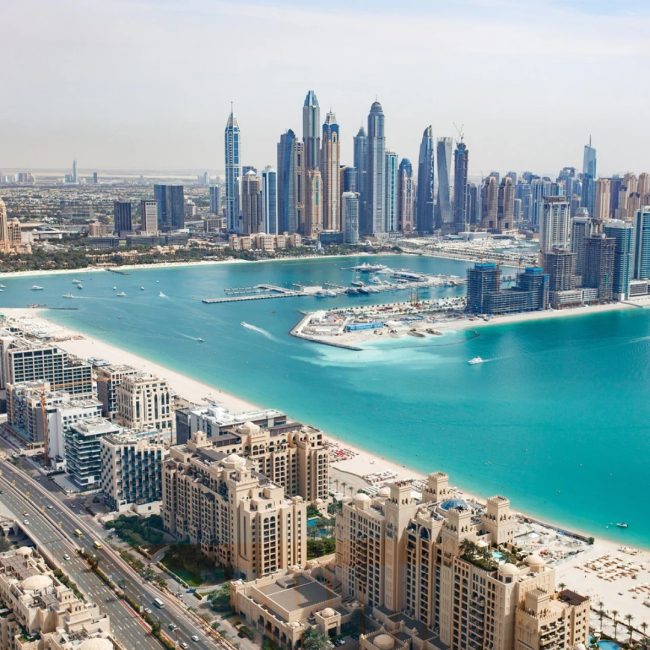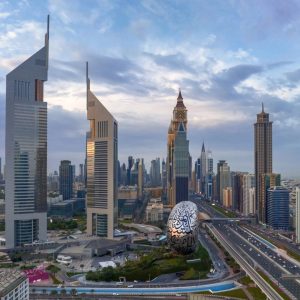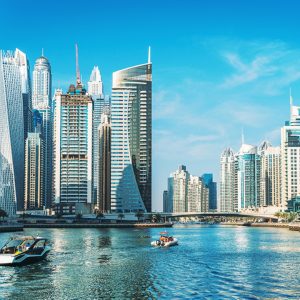
Rental Yield in Dubai: Figures and Expert Advice
Dubai’s real estate market remains one of the most attractive for investors. One of the key metrics investors look at when considering property investments is rental yield. Understanding rental yields is crucial to making informed decisions and maximizing your returns on investment. Buying property with cryptocurrency adds an extra layer of flexibility and modern investment strategy, allowing investors to leverage digital assets while benefiting from Dubai’s tax-friendly environment and strong real estate growth potential.
In this blog, we’ll dive deep into rental yield figures in Dubai for 2025, give you advice on how to maximize returns. Beyond the numbers, we’ll also highlight how living in Dubai enhances the appeal of property ownership, offering residents tax-free income, world-class amenities, and a vibrant lifestyle that complements strong investment potential.

What is Rental Yield?
Rental yield is the return on investment a property generates through rental income, expressed as a percentage of the property’s value. It is a crucial metric for real estate investors because it provides a clear understanding of how much income a property can generate relative to its cost.
- Formula: Rental Yield = (Annual Rent / Property Value) x 100
For example, if a property is worth AED 1,000,000 and the annual rent is AED 70,000, the rental yield is 7%.
Rental Yield Figures in Dubai for 2025
Dubai’s rental yield figures for 2025 remain highly attractive, with average returns ranging between 6–7%, well above many global property markets. Apartments continue to deliver stronger yields at around 7–7.3%, while villas and townhouses average closer to 5%.
Some areas outperform significantly, such as Dubai Silicon Oasis with yields above 8.5%, and affordable zones like International City and Dubai Sports City, where returns reach up to 9.1%. Prime districts like Business Bay and Dubai Marina also perform solidly, offering 6.7–7.2%, making Dubai one of the world’s most profitable real estate investment destinations in 2025.
Rental Yields for Apartments
- Average Yield: 5% – 7%
- High-Yield Areas: Dubai Marina, Downtown Dubai, Jumeirah Village Circle
Rental Yields for Villas
- Average Yield: 4% – 6%
- High-Yield Areas: Palm Jumeirah, Arabian Ranches, Dubai Hills Estate
Commercial Properties
- Average Yield: 7% – 8%
- High-Yield Areas: Business Bay, DIFC, Dubai Silicon Oasis
These rental yields provide investors with the opportunity to earn stable returns on their property investments. However, the yield varies depending on the property’s location, demand, and market conditions.
Factors Influencing Rental Yield in Dubai
Several factors play a role in determining rental yield, including location, property type, and market trends.
Location
The location of a property is perhaps the most important factor in determining its rental yield. Properties in high-demand areas with strong infrastructure and amenities tend to generate higher yields.
- Prime Locations: Areas like Downtown Dubai, Dubai Marina, and Palm Jumeirah offer the best rental yields.
- Emerging Locations: Areas like Dubai South and Meydan show strong future potential for capital appreciation.
Property Type
- Apartments: Smaller apartments, such as studio and 1-bedroom units, tend to generate higher yields than larger properties due to their affordability and high demand.
- Villas: While villas offer lower rental yields, they tend to provide greater capital appreciation over time.
Market Conditions
The state of the real estate market also affects rental yields. For instance, during a market downturn, rental yields might decline, while a booming market can result in higher rental returns.
Should You Buy Off-Plan in Dubai?
Buying off-plan in Dubai can be a smart move, offering lower entry prices and flexible payment plans compared to ready properties. Investors often benefit from strong capital appreciation once the project is completed. However, risks include potential construction delays and market fluctuations. Careful research on the developer’s track record is essential before committing.
The Appeal of Off-Plan Properties
Buying off-plan properties, or properties that are still under construction, can offer investors higher rental yields and capital appreciation potential.
- Lower Initial Investment: Off-plan properties are generally priced lower than ready-to-move-in properties.
- Flexible Payment Plans: Developers often offer installment payment plans, making it easier for investors to spread out the cost over time.
Risks of Off-Plan Investments
- Delayed Completion: Construction delays can affect when you can start earning rental income.
- Market Fluctuations: The market may change by the time the property is completed, affecting its value and rental yield.
Key Considerations
- Choose developers with a good track record.
- Research the demand for properties in the area.
- Ensure that the location has long-term potential for capital appreciation.
For more insights into off-plan investments, check out Opportunities in Dubai.
Taxation in Dubai
Dubai is known for its tax-friendly environment, making it highly attractive to investors and businesses. There is no personal income tax, which allows residents to maximize earnings. For real estate, property owners benefit from no annual property tax. However, a 4% transfer fee applies during property purchases.
Why Taxation Matters for Investors
One of the key benefits of investing in Dubai real estate is its tax-free environment. Understanding the tax system in Dubai is essential for maximizing your rental yield and keeping more of your income.
No Income Tax
Dubai does not impose income tax on rental income, meaning investors can keep all of the income generated from their properties.
No Capital Gains Tax
When you sell a property in Dubai, there is no capital gains tax, which is a significant benefit for property investors looking to make a profit from appreciating assets.
VAT on Certain Services
Dubai introduced a 5% Value Added Tax (VAT) in 2018, which applies to certain services, such as real estate agent fees, property management services, and some property sales transactions.
Understanding these tax benefits helps investors assess the potential returns from their real estate investments.
Where Should You Invest in Dubai?
Dubai offers diverse investment hotspots depending on your goals. Areas like Downtown Dubai and Palm Jumeirah attract luxury investors with high capital appreciation. Business Bay and Dubai Marina provide strong rental yields for long-term income. For sustainable growth, emerging communities like Dubai Creek Harbour and Dubai Hills are gaining popularity.
Best Areas for Real Estate Investment in Dubai
Location is a critical factor when it comes to securing high rental yields in Dubai. Some areas consistently perform better than others due to demand, amenities, and development potential.
Top Areas for High Rental Yield
- Dubai Marina: A bustling waterfront area with luxury apartments, offering great rental yields for short-term and long-term tenants.
- Downtown Dubai: Known for iconic landmarks like the Burj Khalifa, this area consistently provides high rental yields due to its prime location.
- Jumeirah Village Circle (JVC): This developing community is offering excellent rental yields, particularly for smaller apartments.
- Palm Jumeirah: Though it has lower rental yields, Palm Jumeirah is a high-demand luxury area with tremendous potential for long-term capital growth.
- Business Bay: A growing business hub that combines residential and commercial spaces, ensuring high demand and rental returns.
Finance Your Property Investment in Dubai
Financing your property investment in Dubai can make the process easier, especially for international investors who don’t have the full capital upfront.
Financing Options Available for Foreign Investors
- Bank Mortgages: Banks in Dubai offer mortgages for non-resident investors, typically up to 75% of the property value for expats, with a minimum down payment of 25%.
- Developer Financing: Many developers offer financing plans for off-plan properties, allowing investors to pay in installments until the property is completed.
- Cash Purchases: For those who can afford it, cash purchases simplify the process and expedite the investor visa application.
Documentation Required for Financing
- Proof of income and financial stability.
- A valid passport and proof of identity.
- A down payment of at least 25% for foreign investors.
Investing in Real Estate in Dubai
Investing in real estate in Dubai is a lucrative opportunity, but like any investment, it comes with risks. Here’s what you need to consider when entering the market:
Key Factors to Consider When Investing in Dubai
- Market Research: Understand market trends, including rental demand, capital appreciation, and areas with growth potential.
- Legal Requirements: Ensure that your property is located in an area where foreigners can legally invest (freehold areas).
- Property Management: Consider whether you will manage the property yourself or hire a property management company.
- Economic Factors: Keep an eye on the broader economic conditions, such as changes in interest rates, inflation, and government policies.
Rental Yield as a Measure of Success
Rental yield is a great way to measure the success of your investment, but you should also consider other factors, such as capital appreciation, location desirability, and potential future developments in the area.
For more information, consider checking out the Investment Tool.
Rental yield is a crucial metric for any real estate investor looking to invest in Dubai’s property market. With strong yields, tax benefits, and numerous opportunities for capital appreciation, Dubai remains a top choice for both local and international investors.
Whether you choose to invest in off-plan properties, take advantage of financing options, or focus on prime locations, understanding rental yield can help you make smarter, more profitable investment decisions. Contact Valorisimo for a tailored consultation and explore the best opportunities in Dubai real estate market.
Related Posts

Golden Visa Dubai: Complete Guide for Investors in 2025

UAE Mortgage Guide: 2025.

Service Charges in Dubai & Abu Dhabi 2025.

Spotlight on Dubai’s Most Active Developers in 2025

A Comprehensive Guide to Mortgages in Dubai Real Estate

How Cryptocurrency is Shaping the Future of Real Estate in Dubai

Living in Dubai: Expat Guide 2025

Buying Property in Dubai with Cryptocurrency

